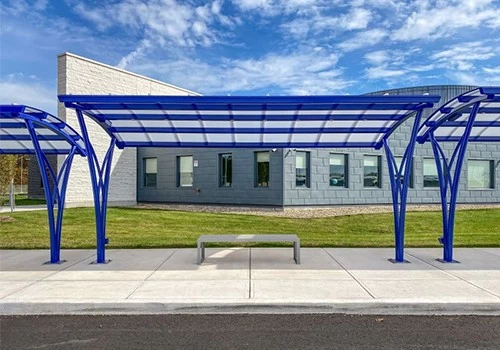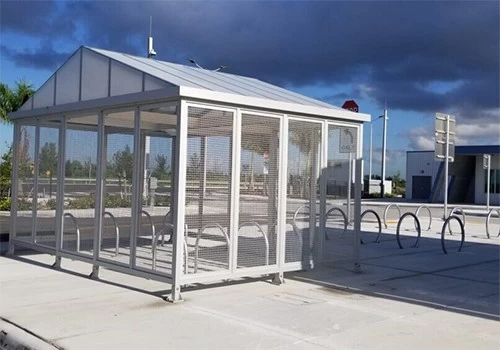Specifications
Model Number : PV-SC-001
Type: Bike parking and storage
Color:Yellow,Black,Green,Red,or Customized.
Style : both indoors and outside
Material : carbon steel
Loading: According to customer need
Size :195*23.2*75cm,200.55*23.2*75cm,or Customized.
Finish: hot-galvanized
Specifications
Model Number : PV-0081-01
Type: Bike parking and storage
Color:silver
Style : both indoors and outside
Material : carbon steel
Loading: According to customer need
Size :Height 1463mm, Depth 1114mm
Finish: hot-galvanized
Model Number : PV-0081-01
Type: Bike parking and storage
Color:Black
Style : both indoors and outside
Material : carbon steel
Loading: 2-10 bikes (According to customer need)
Size :Height 1463mm, Depth 1114mm
Finish: hot-galvanized
Model No.: PV-H1
Size: w605*D400*H330mm
Specification: Round tube:¢16*1.2mm
Finish: Power coated
Net Weight: 1.6 kgs
Packing size:6pcs/ctn
MOQ: 100pcs
Model Number : PV-0024-01
Material : carbon steel/stainless steel
Loading: according customer space size,we can design according the size
Size : W1977*D1130(depend on your parking space)*H2500mm
Finish: Powder coated ,hot-galvanized/electric polish
Packing size :2000*2000*2500mm(40 parking space )
Powder coated ,hot-galvanized/electric polish
Product number:PV-0046-01
Material:carbon steel
Specification:10.2*59*28CM or Customized.
MOQ:100PCS
Port:Shanghai
Trademark:PV
Model Number : PV-0081-01
Type: Outdoor Bike Parking Rack
Style : both indoors and outside
Material : carbon steel
Loading: 2-10 bikes (According to customer need)
Size :170.5*116*148CM
Finish: hot-galvanized
Model Number : PV-0055-01
Type: compact flat pack /slot
Color:black / silver /yellow/optional
Style :Outdoor/indoor
Material : carbon steel/ stainless steel
Capacity : park 6 bikes
Size : L1400*W1054*H840mm
Net weight :38KG
Finish: powder coating / hot galvanized /elctropolishing
Packing size :1490*860*160mm 1pcs/ctn
Product Name: Multi-Capacity Horizontal Two Tier Bike Parking Rack
Material: Carbon Steel
Finish: Powder coated
Post: 80mm * 80mm thickness: 3mm
Steel plate: thickness: 2mm
Dimension: 1325*1890*1830mm
Weight: 370 kg/set
Model: PV-0067-01
Material: stainless steel 304
Pipe: 50 mm* 2.5 mm
Size: 900*700 mm(L*W)
Surface treatment: polishing

In the quest for sustainable urban development, the integration of public art into outdoor bike parking racks has emerged as a powerful strategy to enhance both functionality and aesthetics. This approach not only addresses the practical needs of cyclists but also transforms public spaces into vibrant, culturally rich environments. By merging art with infrastructure, cities can create a unique urban identity that promotes cycling as a preferred mode of transportation while fostering community engagement and environmental sustainability.
Bike parking racks have long been seen as mere utilitarian objects, designed primarily for the purpose of securing bicycles. However, the growing emphasis on sustainable urban planning has led to a reimagining of these structures as integral components of the urban landscape. Integrating public art into bike racks elevates their status from simple parking solutions to dynamic public installations that reflect the local culture and creativity. This fusion of art and functionality not only enhances the visual appeal of public spaces but also encourages more people to choose cycling as a means of transportation.
When designed thoughtfully, bike racks can become symbols of urban identity, showcasing the character and values of a city. For example, in Portland, Oregon, the city has introduced a program where bike racks double as public art installations. These unique designs capture the city’s creative spirit and make bike parking a statement of urban identity. Similarly, in Barcelona, bike parking areas feature designs that celebrate the city’s architectural heritage, turning functional infrastructure into public art displays. By incorporating elements of local culture and art, these bike racks become landmarks that contribute to the overall aesthetic of the cityscape.
The integration of public art into bike racks serves as a powerful tool to promote cycling culture. When bike racks are designed to be visually appealing and culturally relevant, they become more than just bike parking solutions—they become conversation starters and community focal points. This approach encourages more people to cycle, as it transforms the act of parking a bike into an engaging and enjoyable experience. Additionally, involving the community in the design process, through public art competitions or partnerships with local artists, fosters a sense of ownership and pride among residents. This collaborative approach not only enhances the aesthetic appeal of bike racks but also strengthens community bonds and promotes a culture of sustainability.
Beyond their aesthetic and cultural impact, bike racks integrated with public art also offer significant environmental and economic benefits. By promoting cycling, these racks contribute to reduced traffic congestion and lower carbon emissions. Studies have shown that cities with well-designed bike parking infrastructure experience a measurable decrease in car usage, directly supporting sustainability goals. Economically, bike racks that double as public art can boost local businesses. Cyclists are more likely to shop locally and spend more per month at neighborhood stores compared to car drivers. This makes bike racks not just functional infrastructure but also economic catalysts for urban areas.

Several cities around the world have pioneered innovative approaches to integrating public art into bike racks. In Salt Lake City, the Art Design Board commissioned local artists to create bike racks that are both functional and imaginative. These racks, installed at various downtown locations, enhance the city’s image as a cultural destination while promoting cycling as a viable transportation option. Another example is the Wave bike rack, which features an undulating form that mimics the movement of cyclists while providing multiple locking points. These designs not only serve their practical purpose but also add a touch of elegance and creativity to public spaces.
While the integration of public art into bike racks offers numerous benefits, it also presents some challenges. One of the primary concerns is ensuring that artistic designs do not compromise the functionality of the racks. Bike racks must remain secure, accessible, and easy to use, even as they incorporate artistic elements. Additionally, maintaining the durability and longevity of these structures is crucial, especially in outdoor environments where they are exposed to the elements. To address these challenges, designers must strike a balance between aesthetics and practicality, using durable materials and innovative engineering solutions.
Looking ahead, the future of bike parking is likely to see even greater integration of public art and technology. Smart bike racks, equipped with features like solar-powered lighting, GPS tracking, and app-based controls, are already becoming more common. These advanced designs not only enhance the user experience but also contribute to the overall sustainability of public spaces. As cities continue to evolve, the role of public art in bike parking will become increasingly important, as it helps shape the identity of urban environments and promotes a culture of sustainability.
Integrating public art into outdoor bike parking racks represents a transformative approach to urban planning and design. By merging functionality with aesthetics, cities can create public spaces that are not only practical but also culturally rich and visually appealing. This approach promotes cycling as a sustainable mode of transportation, fosters community engagement, and enhances the overall quality of urban life. As we move towards a more sustainable future, the integration of public art into bike racks will play a vital role in shaping the identity of our cities and encouraging a culture of environmental stewardship.